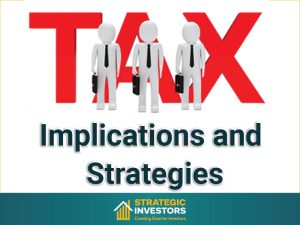
Are you looking to step into the world of real estate investing in Australia? Whether you’re a beginner or an experienced investor, understanding the nuances of property investment is crucial to your success. This definitive guide will walk you through different types of investments, factors to consider, financing options, and much more. Strap in and get ready to embark on a journey that could potentially change your financial future!
Key Takeaways
- Real estate investing requires an understanding of the types of investments and factors to consider for success.
- Location, features, and financial analysis are key when evaluating investment properties. Financing options include loans and equity from existing property.
- Diversification, education & networking plus a long-term perspective are essential for successful real estate investing.
Understanding Real Estate Investing

However, understanding the types of real estate investments and the factors to consider is crucial for success. Let’s delve deeper into these aspects to help you make informed investment decisions.
Types of Real Estate Investments
There are various types of real estate investments to consider, including:
- Rental Properties
- Real estate investment trusts (REITs)
- Property schemes
- Online real estate platforms
- Crowdfunding platforms
Each investment type comes with its own set of potential returns and risks. For instance, real estate crowdfunding allows investors to participate in property investments with a relatively low initial investment, starting at around $1000. On the other hand, REITs aggregate capital from multiple investors to manage and operate income-generating properties, offering a good potential for return.
Property schemes and real estate mutual funds provide diversified exposure to property with minimal capital investment. However, before investing in a property scheme, it’s essential to evaluate potential risks and determine whether the scheme aligns with your investment goals. Understanding these various investment types empowers you to make informed decisions and diversify your investment portfolio.
Factors to Consider
When it comes to real estate investing, several factors play a crucial role in determining success. Some of these factors include:
- Your personal financial situation
- Your investment objectives
- Your cash flow needs
- Your understanding of the property market
All of these factors should be taken into account before making an investment decision.
Additionally, understanding the costs involved in owning an investment property is vital. These costs may include:
- Repairs
- Interest
- Legal fees
- Taxes
Be sure to consult a real estate agent or other professionals for guidance on evaluating these factors and making informed investment decisions.
By taking the time to carefully consider these aspects, you’ll be well-prepared to navigate the world of property investment.
Evaluating Investment Properties

Let’s break down these elements to help you make a well-informed investment decision.
Property Location
Location is crucial for investment success, accounting for approximately 80% of the property’s performance. Proximity to amenities, transportation, and schools are particularly important considerations when assessing an investment property’s location. A property situated in a desirable neighborhood with easy access to essential facilities is more likely to attract tenants and appreciate in value.
When evaluating a property’s location, it’s also a good idea to consider factors such as local infrastructure projects, employment opportunities, and population growth trends. These factors can greatly affect the long-term capital growth potential of the property, making location a critical aspect of the property investment process.
Property Features
In addition to location, the features of a property can significantly impact its value and appeal to tenants. Properties with low-maintenance features that cater to the needs and preferences of potential tenants are more likely to generate consistent rental income. Some attractive features for tenants may include:
- Ensuite in the master bedroom
- Internal laundry
- Additional storage in the garage
- Air-conditioning
Furthermore, properties that allow pets can often yield higher returns, as tenants with pets may be willing to pay a premium for a pet-friendly property. Considering these factors when evaluating a property’s features can ultimately lead to a more successful investment.
Financial Analysis
Financial analysis is another critical aspect of evaluating investment properties. Assessing factors such as rental yield, capital growth, and cash flow can provide insight into the property’s financial potential. It’s important to compare the anticipated income to the expected expenses to determine the investment’s viability.
When calculating rental yield and return on investment, be sure to factor in costs such as property management fees, maintenance costs, and loan repayments. Understanding these financial aspects is essential for making informed investment decisions and ensuring the long-term success of your property investment.

Financing Your Real Estate Investment

Let’s dive deeper into these financing options to help you make the best decision for your investment.
Investment Loans
Investment loans are available from banks and other lenders, offering various interest rates and terms. Lenders typically require a minimum deposit of between 10% and 20% for investment loans. It’s essential to consider your borrowing power, which banks assess based on factors such as your income, existing debts, and the property’s value.
Before applying for an investment loan, be sure to research different lenders and loan products to find the best option for your needs. Consulting with a professional mortgage broker can help you navigate the process and secure the most suitable loan for your investment property.
Using Equity
Another financing option for your real estate investment is using equity from an existing property. Equity refers to the difference between the property’s value and the amount of money owed on it. By taking out a loan against the existing property, you can utilize this equity to finance your new investment property.
Leveraging equity can provide several benefits, such as lower interest rates, the ability to borrow a larger proportion of the property’s value without a deposit, and potential capital appreciation. However, there are also risks associated with using equity, such as a decrease in available equity and increased repayment amounts. Be sure to weigh the pros and cons of using equity before making a decision.
Government Grants and Incentives
Government grants and incentives may be available for first-time investors or those investing in specific property types. These grants and incentives can help offset the initial costs of purchasing a property, making it more affordable for investors.
Some government grants and incentives available for real estate investments in Australia include grants for first-home buyers, incentives to increase the supply of housing, and grants for investing in National Rental Affordability Scheme (NRAS) dwellings. Be sure to research these grants and incentives to determine if you’re eligible and how they can benefit your investment strategy.
Managing Your Investment Property

Let’s explore these aspects of property management and how they can contribute to a successful investment.
Hiring a Property Manager
Hiring a property manager can save you time and ensure that your property is well-maintained and tenanted. Property managers are responsible for various tasks, such as:
- Advertising the property
- Screening and selecting tenants
- Collecting rent and handling financial matters
- Handling maintenance and repairs
- Dealing with tenant complaints and issues
By hiring a property manager, you can have peace of mind knowing that your property is being taken care of professionally.
Engaging a property manager typically comes at a cost, with real estate agent fees ranging between 5% and 12% of the weekly rent. However, the benefits of hiring a property manager can outweigh the costs, as they can help set the right market rental rates, collect rent payments on time, and manage all aspects of the landlord-tenant relationship.
Tenant Selection
Tenant selection is a crucial aspect of managing your investment property, as it directly impacts your rental income and vacancy rates. A careful tenant selection process can lead to:
- More consistent rental income
- Fewer vacancies
- Reliable tenants who pay their rent on time
- Longer duration of tenant occupancy
Before selecting tenants, consider factors such as their income relative to the rent, rental history, and preferences for the property’s location and features. By taking these factors into account, you can ensure that you’re selecting tenants who are most likely to contribute positively to your investment’s success.
Ongoing Maintenance and Repairs
Regular maintenance and repairs are essential to keeping your investment property in optimal condition and maintaining its value. It’s important to conduct periodic inspections and address any issues in a timely manner. Engaging qualified professionals for major repairs, keeping accurate records, and allocating funds for maintenance costs are also important aspects of property management.
By staying on top of maintenance and repairs, you can prevent potential issues from escalating and negatively impacting your investment’s long-term success. Additionally, a well-maintained property is more attractive to prospective tenants, further contributing to consistent rental income.
Tax Implications and Strategies

Let’s examine each of these strategies in more detail.
Negative Gearing
Negative gearing occurs when the deductible expenses associated with a rental property exceed the income generated from it. This tax-deductible loss can be used to offset other income for taxation purposes, potentially reducing your overall tax liability.
While negative gearing can provide tax benefits, it’s important to be aware of the potential risks, such as the unpredictability of future investment property performance and the possibility of a sizeable tax bill if rental income doesn’t meet expenses. Weighing the pros and cons of negative gearing can help you make informed investment decisions.
Depreciation Deductions
Depreciation deductions can be claimed for the wear and tear of your investment property and its fixtures and fittings. To claim depreciation deductions, you’ll need to obtain a depreciation schedule from a qualified quantity surveyor, detailing the deductions that can be claimed for the property and its components.
Claiming depreciation deductions can help lower your taxable income and improve your cash flow. This tax strategy can be particularly beneficial for investors who are looking to offset losses from their investment property and minimize their tax liability.
Capital Gains Tax
Capital gains tax (CGT) is a tax levied on profits generated from the sale of assets, including investments such as property. The CGT rate is based on your marginal tax rate if you’re an individual, while companies are subject to a flat 30% tax rate on net capital gains.
There are potential discounts available for long-term holdings, such as a 50% CGT discount for individuals who have held an asset for a minimum of 12 months. Being aware of these discounts and potential exemptions can help you plan your investment strategy and minimize your tax liability.
Risks and Challenges in Real Estate Investing

Let’s explore these risks and challenges in more detail.
Market Volatility
Market volatility refers to the uncertainty and risk associated with the value of an investment, which can significantly impact property values and rental demand. Factors such as economic indicators, central bank policies, and market conditions can contribute to market volatility.
To manage market risk in real estate investing, it’s crucial to:
- Maintain a long-term outlook
- Adopt a diversified investment approach
- Stay informed about market trends and potential risks
- Make better investment decisions
- Navigate market fluctuations more effectively.
Interest Rate Fluctuations
Interest rate fluctuations can have a considerable impact on borrowing costs and property affordability. Changes in interest rates can affect the cost of mortgage repayments, making it more difficult for potential buyers to purchase property when rates are high, or easier when rates are low.
Staying informed about interest rate trends and understanding their potential impact on your investment can help you make better investment decisions and plan for fluctuations in borrowing costs. It’s also a good idea to consider fixing your interest rate or opting for a split loan to manage the risk of interest rate fluctuations.
Regulatory Changes
Regulatory changes can affect property investment strategies and potential returns. For instance, foreign investors looking to invest in real estate in Australia must be aware of the regulations set by the Foreign Investment Review Board and obtain foreign investment approval prior to purchasing residential real estate.
Staying informed about regulatory changes and understanding how they might impact your investment strategy is crucial for successful real estate investing. By keeping up-to-date with relevant laws and regulations, you can ensure that your investment strategy remains compliant and adaptable to any potential changes.
Tips for Successful Real Estate Investing

Let’s delve deeper into these tips to help you make the most of your property investment journey and provide you with valuable property investment advice.
Diversification
Diversifying your investments across different property types and locations can help manage risk and optimize returns. By spreading your investments across different markets and asset classes, you can reduce the effects of market fluctuations and other risks associated with real estate investments.
To ensure successful diversification, consider various investment options, associated risks, and potential returns. Additionally, diversify across different asset classes and markets to maintain a balanced and resilient investment portfolio.
Education and Networking
Education and networking are essential for staying informed about market trends and investment opportunities. Attending real estate investment events, participating in online forums, and connecting with other investors can provide valuable insights and resources to help you make better investment decisions.
In addition to networking, there are various educational resources available, such as online information, property investment courses, and podcasts. By continuously learning and staying informed, you can enhance your understanding of the property market and make more informed investment decisions.
Long-term Perspective
Maintaining a long-term perspective in real estate investing is essential, as it can help you:
- Weather market downturns
- Optimize returns in the long run
- Make better investment decisions
- Achieve greater success in your real estate investment journey
By focusing on the bigger picture and not getting caught up in short-term market fluctuations.
Having a long-term outlook can help you stay focused on your goals and make decisions that are informed.
Summary
In conclusion, successful real estate investing in Australia requires a combination of knowledge, strategy, and perseverance. By understanding the types of investments, evaluating properties, securing financing, managing your investment, and navigating tax implications, you can maximize your investment’s potential. Remember to diversify, educate yourself, network, and maintain a long-term perspective to navigate the complex world of property investment and build a bright financial future.
Frequently Asked Questions

How to invest $10 000 dollars in real estate?
Invest in a cheap rental property with your $10,000 down payment. Fix it up and rent it out – this is a low-risk, long-term strategy to maximize returns on your real estate investment.
Rental properties can be a great way to generate passive income and build wealth over time. With a small down payment, you can start to build equity in a business.
Is investing in real estate now a good idea?
Investing in real estate can be a wise decision, as it offers middle-class families the potential to build wealth with relatively low initial costs.
There is no definitive answer as to the short-term outlook, however over the long term real estate has the potential to generate a reliable stream of income and capital growth.
How much deposit do I need for an investment property in Australia?
You’ll typically need a 20% deposit for an investment property in Australia. This can be sourced from your savings or equity from your existing home, and should take into account living expenses, existing debts, financial commitments, and rental income and expenses.
It’s important to consider all of these factors when deciding how much you can afford to borrow. You should also factor in the costs associated with buying an investment property.
What are the different types of real estate investments?
Real estate investments include rental properties, REITs, property schemes, and crowdfunding platforms – a variety of options for individuals to consider.
These options provide a range of potential returns, depending on the type of investment and the individual’s risk appetite. It is important to research each option thoroughly before making a decision, as each has its own advantages and disadvantages.
How can I finance my real estate investment?
You can finance your real estate investment through investment loans, equity from existing properties, or government grants and incentives.












